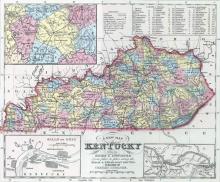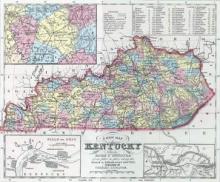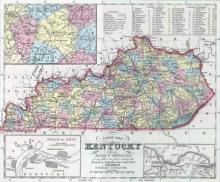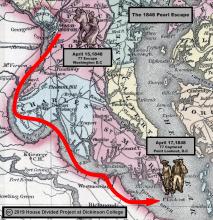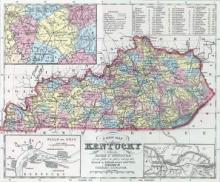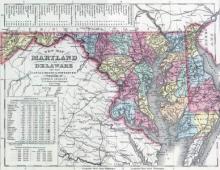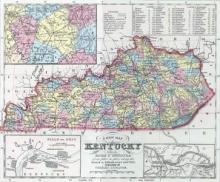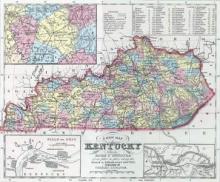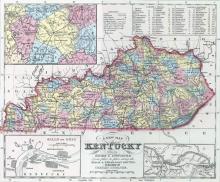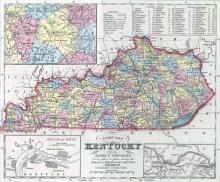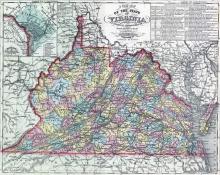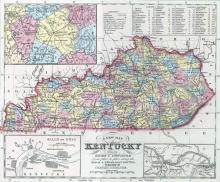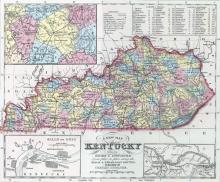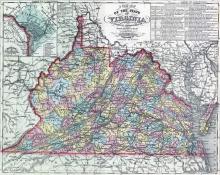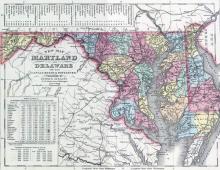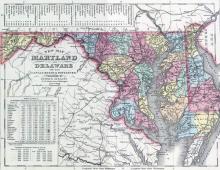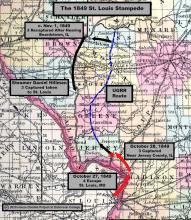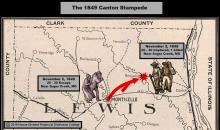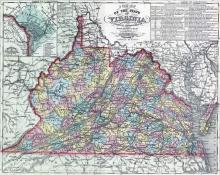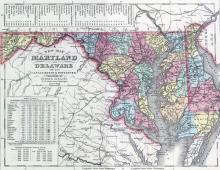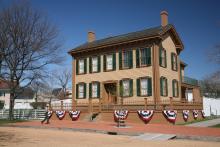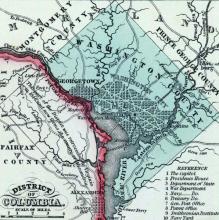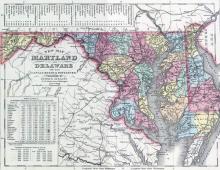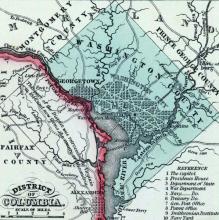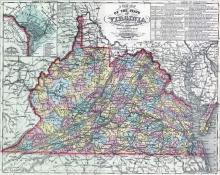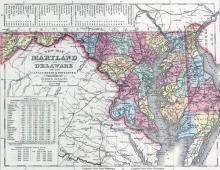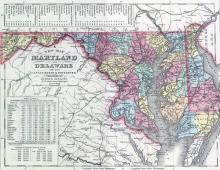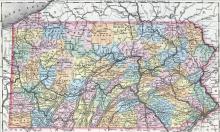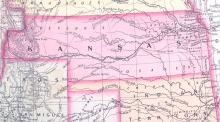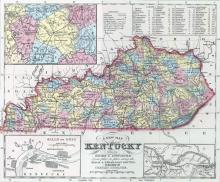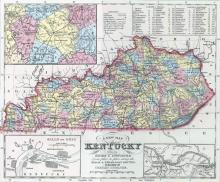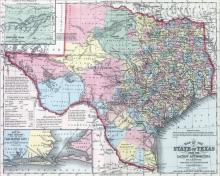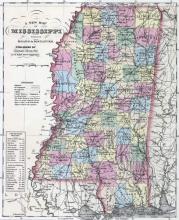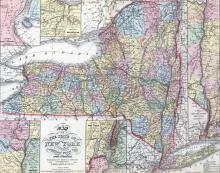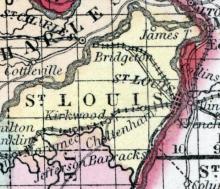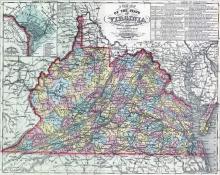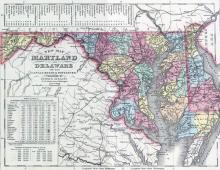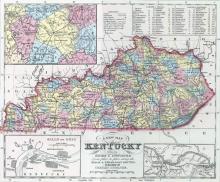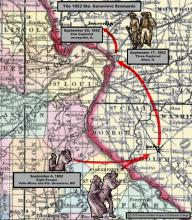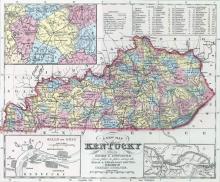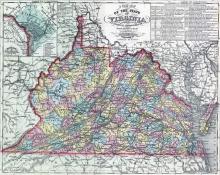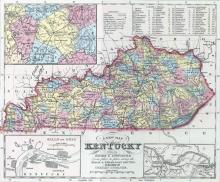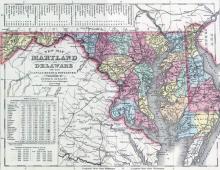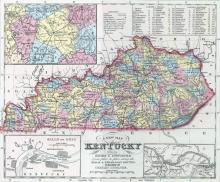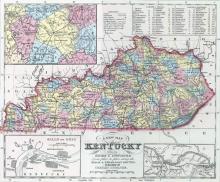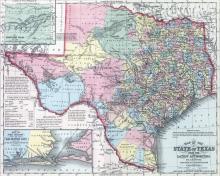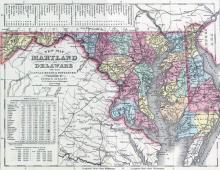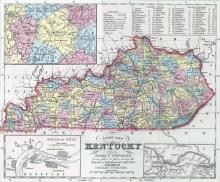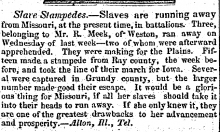In mid-May 1847, five to six enslaved people fled from Maysville, Kentucky across the Ohio River to free soil. The Covington, Kentucky Register pointed the finger at members of the Northern Methodist Church. A "distinguished preacher of that denomination" was reportedly seen at the very house where five enslaved people escaped, and around the same time.
View All Stampedes, 1847-1865 // 1840s // 1850s // 1860s
Displaying 1 - 50 of 212
On April 15, 1848, 77 freedom seekers fled Washington, D.C. with the assistance of two white abolitionists. The boat they were traveling in, The Pearl, was overtaken by slaveholders and the whole party recaptured and brought back to Washington on April 18, 1848. Although it was not referred to as a "stampede" at the time, four years later, when President Millard Fillmore pardoned the two abolitionists involved in the escape, a Georgia editor proclaimed it "the great slave stampede."
On Saturday night, August 5, 1848, a group ranging in number from 50 to 80 enslaved people fled from near Lexington, Kentucky. Accompanying the group was a white man named Patrick Doyle. The freedom seekers were overtaken and recaptured after a violent confrontation. Reports later emerged suggesting that Doyle had instigated the escape with the plan to betray the freedom seekers and pocket the reward.
On Tuesday night, September 5, 1848, a group of 12 to 20 enslaved people fled from two slaveholders in Baltimore county, Maryland. Six were claimed by slaveholder J.T.H. Worthington. According to reports, the group succeeded in crossing into Pennsylvania, despite being pursued by white Marylanders.
Armed with free passes, "about forty" enslaved people were planning a stampede from Woodford county, Kentucky on Saturday night, October 7, 1848. But the plot was discovered when one enslaved person confessed, and the escape "frustrated" before it could begin.
Throughout late October 1848, multiple "stampedes" occurred from near Maysville, Kentucky. One "stampede" saw "some four or five" enslaved people escape, evidently heading for Ripley, Ohio, and "several others" were also missing. Meanwhile, three enslaved people from neighboring Montgomery county were captured near Ripley before they were able to cross the Ohio river.
In mid-November 1848, a group of seven freedom seekers passed through Cleveland en route to Canada. Reports do not specify where the escapees originated from, though they likely escaped from Kentucky.
On Saturday night, December 23, 1848, two enslaved people, a man and a woman, escaped from their enslaver in Maysville, Kentucky. Reports suspected that "several others have left the city and county."
Around the beginning of September 1849, a group of freedom seekers, heavily armed "with bowie-knives, dirks, &c.," fled from Jefferson county, Virginia, heading north towards Pennsylvania. Two miles north of Wolfsville, Maryland, the group was overtaken by slave catchers. A violent confrontation ensued, and it "required a strong force" to re-enslave the freedom seekers.
On Sunday, September 9, 1849, a group of eight freedom seekers attempted to cross the Ohio river on a skiff. But the small boat capsized, and four of the freedom seekers were tragically drowned. The other four cried for help, were brought ashore by a passer-by, who ushered them to jail and back into slavery.
Around the weekend of September 8-9, 1849, multiple escapes occurred throughout Hardin county, Kentucky, in what reports called a "stampede." Two enslaved people escaped from a camp meeting near Rough Creek, and it is unclear if they were recaptured. Then on Sunday, September 9, four freedom seekers escaped from three different slaveholders, but were eventually recaptured.
On Saturday night, September 15, 1849, around 10 to 12 enslaved people escaped from multiple slaveholders near Winchester, Virginia. After a violent encounter, six were recaptured, while the fate of the remaining freedom seekers is unknown.
On Saturday, October 14, 1849, around six enslaved people escaped from Centreville, Maryland, heading southeast across Caroline county to Delaware, and from there to New Jersey.
In October 1848, the Underground Railroad through Delaware was as busy as ever. Reports of numerous "stampedes" indicated that upwards of 100 freedom seekers may have escaped from Maryland, through Delaware, in their pursuit of freedom during the span of a few weeks. A Wilmington, Delaware paper noted the escape of 16 freedom seekers (eight from Maryland, and eight from Kent county, Delaware), who crossed the Wilmington bridge to Delaware.
On Saturday night, October 27, 1849, a group of six enslaved people escaped from St. Louis for "parts unknown," according to the local newspaper. The flight came in the wake of a series of recent group escapes, leading many in the city to suspect "that they have been stampeded." This appears to be the very first newspaper reference to a slave stampede from Missouri.
In early November 1849, somewhere between 35 and 50 enslaved people around Canton in Lewis County, Missouri, led by a woman named Lin and a man known as Miller's John, planned a stampede for freedom but were betrayed and cornered before they could cross the Mississippi River. There was a violent shootout that left at least one dead and resulted in dozens of newspaper articles across the nation.
On Friday night, November 23, 1849, eight enslaved people escaped from Jefferson county, Virginia. The next night, six freedom seekers left the farms and residences of four different enslavers near Martinsburg, Virginia.
Sometime in early December 1849, five freedom seekers escaped from Talbot county, Maryland.
Up to 14 freedom seekers escaped from St. Louis and passed through Springfield, Illinois in January 1850, where they received help from Jameson Jenkins, a free black neighbor of Abraham Lincoln's.
In late May 1850, a correspondent described a "stampede" of about 20 enslaved people from Washington, D.C. One group of three people escaped from the home of South Carolina congressman William Colcock on Tuesday night, May 28.
Sometime in June 1850, a group of 16 enslaved people fled from Baltimore county, Maryland, journeying to Shrewsbury, Pennsylvania. But slaveholders offered a hefty $2,000 reward for the freedom seekers' recapture, and they were discovered hiding in the outhouse of a farm near Shrewsbury. The freedom seekers were re-enslaved and taken back to Maryland.
On Saturday night, July 27, 1850, a group of freedom seekers escaped from Washington, D.C. with the aid of abolitionist William Chaplin. Among them were several enslaved people claimed by Georgia congressmen Robert Toombs and Alexander H. Stephens. However, Washington police had gotten wind of the plot, and ambushed the wagon in which the freedom seekers and Chaplin were traveling, ending their quest for freedom.
Sometime in late July 1850, a group of eight freedom seekers were seen crossing the mountains west of Clearspring, Maryland. Reports suggested that they were claimed by slaveholders from "southern Virginia."
Sometime in early August 1850, seven freedom seekers escaped in concert from Baltimore, Calvert, Montgomery, and Prince George's counties. On Wednesday, August 7, a group of Pennsylvanians observed the freedom seekers at the home of a free black man near Shrewsbury, who was not identified by name, and attempted to trick the runaways with promises of help.
On Sunday night, August 18, 1850, a sizable group ranging in number from 30 to 40 freedom seekers escaped from Prince George's county, Maryland. Their ultimate fate remains unknown.
Soon after the passage of the 1850 Fugitive Slave Act, reports described the flight of fugitive slaves from Pittsburgh, Pennsylvania. Most contemporaries believed that these individuals had long since escaped from bondage in the Upper South, and now took flight to avoid re-enslavement under the new federal code.
Sometime in late 1850, accounts described the mass escape of between 150 to 200 enslaved people held by Seminole and Creek Nations. The escapees were reportedly headed south towards Mexico.
Throughout late April 1851, a number of "stampedes" were launched from Mason and Nicholas counties, Kentucky. On Sunday night, April 27 alone, more than 14 freedom seekers escaped from around Maysville, while "several" others left Nicholas county during the same week.
Around May 1, 1851, a "stampede" of roughly 20 freedom seekers took place from Lewis county, Kentucky. Among the group was an enslaved mother and her seven children, ranging in age from 25 to 12. However, after crossing the Ohio river the group was recaptured, with a sizable $4,000 reward doled out to the captors. Following their recapture, the mother and her seven children were sold by a Lewis county slaveholder named Fagan for $4,200.
Sometime in May or June 1851, a group of "several" enslaved people near LaGrange, Texas made a plan to escape to Mexico. However, one of the prospective escapees set out early, was recaptured, and confessed the whole plot, thwarting the escape.
Three freedom seekers, and a man named B. Thompson who had been sentenced to 10 years in the state penitentiary for "negro stealing," escaped from the Lauderdale county jail in what contemporaries called a "stampede." Along with them was a man named Thomas Boyd, imprisoned for assault and battery.
Reports that a U.S. deputy marshal was in Rochester with warrants under the 1850 Fugitive Slave Act prompted the flight of at least three individuals fearing recapture. According to contemporary accounts, it was believed that these three individuals--and possibly more--had previously escaped from slavery and taken refuge in New York.
On Tuesday, July 13, 1852, four enslaved people escaped from St. Louis: 23-year-old George (or William Johnson), who had a free wife in St. Louis, 36-year-old John, 20-year-old Henry, and 16-year-old Isaac. Their enslaver, John Mattingly, advertised a $400 reward for their recapture.
On Wednesday night, July 28, 1852, six enslaved people, who were not identified by name, escaped from Pendleton county, Virginia. Three were held by a local attorney and slaveholder named Z. Dyer, two by another attorney, Cyrus Hopkins, and another claimed by Elijah Stonestreet. Their ultimate fate remains unknown.
On Saturday night, August 7, 1852, some 14 enslaved people, both men and women, escaped from Washington county, Maryland. All were claimed by a slaveholder identified as Mrs. Pendleton of Hagerstown, Maryland, who had hired out (or rented) the enslaved people to work throughout surrounding Washington county. Pendleton offered a sizable $1,400 reward for their recapture. Days later, the freedom seekers were captured at Harrisburg.
On Tuesday night, August 24, 1852, seven heavily-manacled men escaped from the infamous Arterburn slave pen in Louisville, Kentucky. The Louisville Courier described it as a "stampede," and suspected the seven freedom seekers were "lying out" in cornfields near the city, a common resistance tactic adopted by enslaved southerners. Their ultimate fate is unknown.
On Saturday night, September 4, 1852, eight enslaved workers from the Valle mines coordinated a stampede through Ste. Genevieve. Three of the enslaved men --Isaac, Joseph and Bill-- escaped from Valle Lead Mines in Jefferson county, some 30 miles west. Their escape was coordinated with five other freedom seekers from the town of Ste. Genevieve where the Valle family lived. These young men (all named in a runaway advertisement) included Bernard, Edmund, Henry, Joseph and Theodore.
On Tuesday night, September 7, 1852, eight enslaved people--five men, a woman, and two children--escaped from Mason county, Kentucky apparently "in concert," in what the Maysville Eagle termed a "stampede." Although the fate of the eight freedom seekers is unknown, the group escape prompted calls for slaveholders to ramp up their patrols.
On Saturday night, September 25, 1852, seven enslaved people, who were not identified by name, escaped from Wood county, Virginia for "parts unknown." Six of the freedom seekers were claimed by slaveholding lawyer William Spencer, while the seventh escapee was held by the estate of the deceased enslaver George W. Kincheloe.
On Sunday night, September 26, 1852, a group of 31 freedom seekers escaped from Augusta and Dover, Kentucky. Slaveholders pursued the freedom seekers to Ripley, Ohio, where they found some of the escapees' belongings and managed to recapture three. But African American residents of Ripley threatened to resist the slaveholders' efforts with violence if necessary, and local authorities refused to cooperate with the white Kentuckians.
On Saturday, October 16, 1852, a group of 16 enslaved people escaped from near Hagerstown, Maryland. Fifteen of the freedom seekers were claimed by slaveholding lawyer Elias Cheney, and another person held by lawyer Alexander Mitchell. A $1000 reward was offered for their recapture. Their ultimate fate remains unknown.
On Wednesday, October 20, 1852, a group of 10 freedom seekers--six men and four women--escaped from "an interior county of Kentucky" and crossed the Ohio river below Louisville. According to one account, two of the men had heard rumors that they were to be sold to Louisiana, and set off with their wives in order to keep their families intact. Reports indicated that they eluded re-enslavement and successfully gained their freedom.
On Sunday, October 31, 1852, approximately 25 enslaved people escaped from Bourbon county, Kentucky on horseback. Some of the freedom seekers were recaptured near Blue Licks, Kentucky, while others were believed to have crossed the Ohio river. Several Kentucky slave catchers visited Cincinnati days later, but apparently without success. The fate of the remainder of the freedom seekers is unknown.
Two enslaved men and a woman escaped from Boone County, Kentucky in November 1852. With assistance from white abolitionist Levi Coffin in Cincinnati, the three freedom seekers boarded a train. Aboard the train, their slaveholder's nephew, Donn Piatt, recognized the three freedom seekers and persuaded them to disembark with him at West Liberty, Ohio. Piatt promised to steady work and vowed to purchase their freedom. Free Blacks nearby, however, rightly doubted Piatt's motives.
Reports circulated in early 1853 that twenty enslaved people and an overseer had left the plantation of slaveholder Berry Hodge in a "stampede." The group reportedly reached Mexico and freedom.
On Saturday night, January 15, 1853, nine freedom seekers escaped from Cumberland, Maryland in a "stampede." Eight of the escapees were claimed by J.G. Lynn, a slaveholding attorney, and the ninth person by another attorney, Joseph Dilley. The nine freedom seekers charted a course some 25 miles into Bedford county, Pennsylvania, where they were overtaken by slave catchers. The eight freedom seekers claimed by Lynn were all recaptured.
On Saturday night, April 2, 1853, 25 enslaved people escaped from Boone county, Kentucky. Reports suggest they may have travelled north, through Cincinnati to Preble county, Ohio, where Underground Railroad activists reported that "twenty-four Fugitives passed through." This account may have been referencing the same group of freedom seekers.
In mid-May 1853, a group of 15 enslaved people escaped in a "stampede" from Ray county, Missouri, bound for Iowa. "Several" were recaptured in Grundy county, but "the larger number" successfully escaped.

